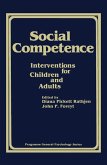Drawing on insights and methodologies from discourse and conversation analysis, pragmatics, ethnography and ethnomethodology, the book examines negotiations in a wide range of workplaces, including the US Federal Trade Commission, management-union meetings, doctors' surgeries, travel agencies, international trading houses in Denmark, Belgium and Australia, Swedish social welfare offices, and consumer helplines. Collectively, the book explores the notion of negotiation both as a formal encounter and as a gloss for more informal decision-making activities.
Questions specifically addressed include: what is the interactional character of negotiation? How are negotiations related to the work context? And how are negotiations undertaken linguistically - as discourse-based activities? Answers are sought by utilising transcripts of real-life instances of negotiation. This allows for finely-detailed descriptions of the observed activities, providing important insight into the discourse-context relationship, the interactional bases of work acitivities, and the communicative processes of negotiation.
Dieser Download kann aus rechtlichen Gründen nur mit Rechnungsadresse in A, B, BG, CY, CZ, D, DK, EW, E, FIN, F, GR, HR, H, IRL, I, LT, L, LR, M, NL, PL, P, R, S, SLO, SK ausgeliefert werden.









